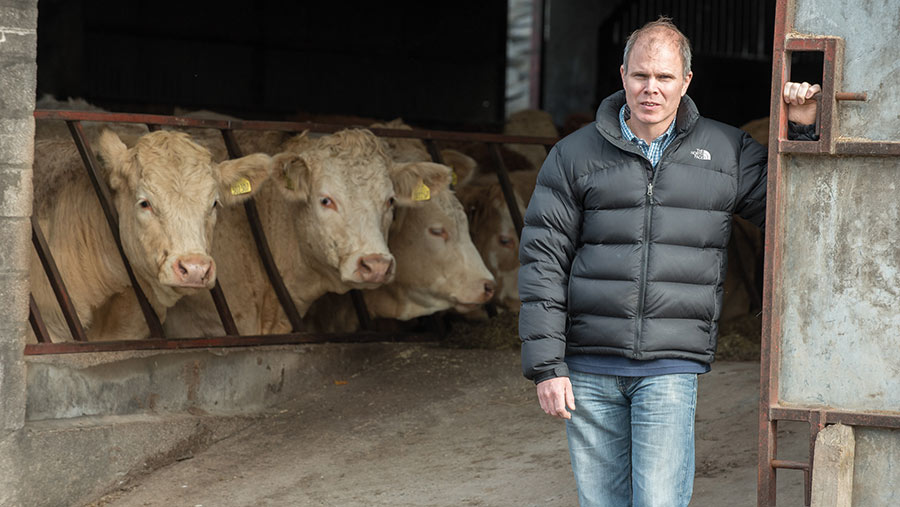Farmer Focus: UK government is in a complete mess
 Robert Drysdale © Angus Findlay
Robert Drysdale © Angus Findlay We have now had a different chancellor for each of the past three articles I have written, and I wouldn’t bet against further change before the next one.
What a mess the UK government has got itself into.
Considering that all of the current upheaval and economic damage has only come about as a result of the behaviour, rather than policies, of the previous prime minister, the country is paying a high price in punishing this behaviour.
See also: Farmer Focus: No legal documents leads to succession stress
We are now housing spring-born calves and have been getting fat cattle away. While returns a head look good, putting the figures against costs incurred on fertiliser shows slim margins.
This, along with a lack of vision for the future of livestock farming from the Scottish government, is contributing to a worrying number of cows being culled every week across Scotland.
A decline in home-produced protein is the likely result over the next few years.
With only about 14 dry days in the past six weeks, progress with field work has dragged.
Harvest finished on 24 September and, on reflection, was relatively easy, if long, with average or better yields and good prices.
The highlight would be OSR, which looked well all year and averaged more than 4t/ha.
Our poorest fields were spring barley sown at the end of March, which suffered from a very wet spell after drilling, and was affected to a great extent by the hot and dry period in July.
The majority of the spring barley, drilled in the second half of April and into May, proved to be the highest yielding and all of it made malting quality.
Winter barley yields were again over my target of 7.5t/ha, reflecting early drilling, with enough, but not too much, rain for most of the season.
Due to the continued wet weather this year, I made a decision to stop drilling barley after 25 September, as previous years show that this reliably results in a yield of 6.5t/ha.
This does not stack up against spring barley. Any drilling days after this are better used to establish wheat.


